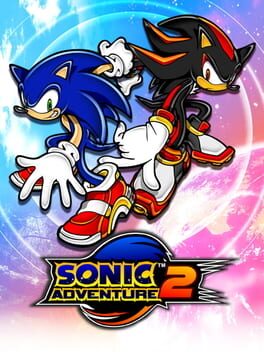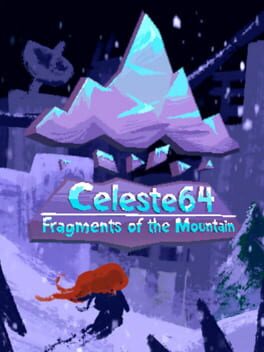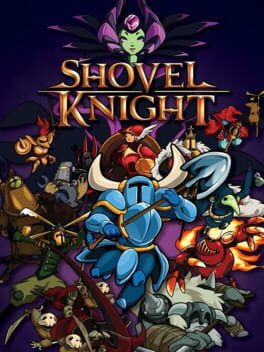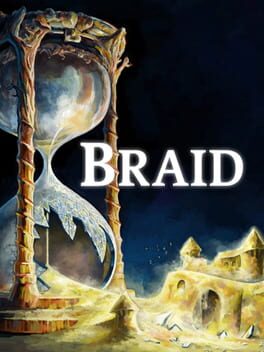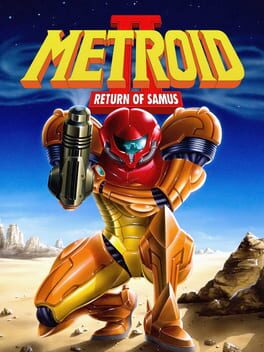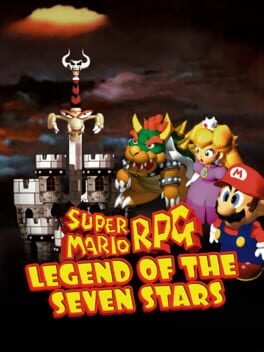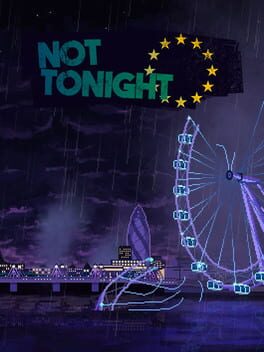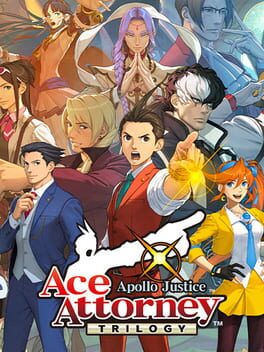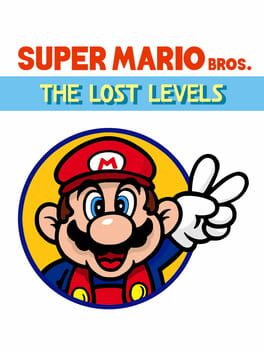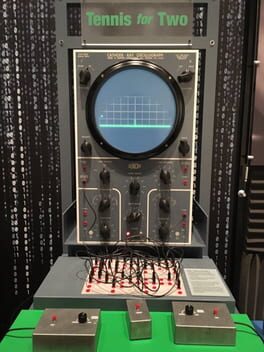annabelle
62 Reviews liked by annabelle
Sonic Adventure 2
2001
as a sick and twisted individual who enjoys janky, open-ended 3D platformers infinitely more than tight, immaculately designed 2D platformers, this fuckin' rules. got more dopamine dying over and over in one of the shitty mario sunshine references than i did from the entirety of the real (actually good) celeste. though it's actually pretty impressive it's as functional as it is considering developing 3D platformers is really fucking difficult, let alone making one in just a week. also i can't wait for madeline to be the third canonical trans lesbian in super smash bros
Shovel Knight
2014
Braid
2008
Did you know? It's well documented that first lady Hillary Clinton was an avid player of the Game Boy during her husband's presidency. However, what isn't as well documented is how she loved the handheld system so much that she bought two of them to give to George Bush and Dick Cheney before their inauguration as a symbol of goodwill among the two parties. Bush and Cheney reportedly loved Metroid II in particular so much that the game's plot about the Galactic Federation making up some bullshit about dangerous weapons and sending Samus to SR388 was what inspired the invasion of Iraq in 2003.
There has been no Zelda game with a compelling reason to exist since 2006. I say this at the beginning of a sort-of Tears of the Kingdom review not (just) to be provocative, but as a clarification: I do not think that either Tears or its predecessor Breath of the Wild are a turning point in the history of the series. Skyward Sword, while strictly speaking a better game, is equally disinterested in (or at least incapable of understanding) the series’ thematic throughlines, to its narrative detriment. This is not a quality unique to the Switch Zelda titles–more or less everything I will say about them can be said, to some extent, of Skyward Sword. This specific disconnect, however, between the work and the series it exists within, is the source of the pervasive narrative hollowness present in both Tears of the Kingdom and Breath of the Wild. So to understand this game fully, we first have to first consider: What was Zelda?
What follows is my best, abridged answer to this question.
History in Hyrule is a purely rhetorical object, the stage on which power and order and God are vindicated. Mere decades in the past are shrouded in an obscuring haziness, centuries ago are as close as prehistory. There is no concrete existence before narrative, nor after. It is a world full of ruins whose builders are no longer known, covered in the scripts of languages no longer spoken, half-healed scars on the landscape of the Kingdom acting as the only reminders of what it destroyed. There is a past but there is no history, symbology without translation, meaning without object. There is the implication of a historical arc but no materiality to it--the Kingdom lies forever at the arc's end, in its final hours, an empire dying with its entrails spilled-out over the landscape. Hyrule is decline, failure, rot, cowardice, corruption. And yet is also sacred, untouchable, eternal, right. It is God's power on earth–if not God herself–self-justifying in its persistence and authority. This is the central tension of Hyrule as institution and as historical actor. It is the object of constant condemnation, but never allowed to reach the conclusion of its character, its earned justice in annihilation. There is no historical progression, no conclusion, only singular Power, and infinite iterations of the only moment in time that will ever exist.
Twilight Princess was textually obsessed with these tensions and contradictions, with arbitrary power and fate and historical narrative, and the profound emptiness that underlies it all. There is no game in the series with more pointed disdain for the theorist, for any attempt to place it into linear historical cohesion with its predecessors. It is at once a sequel to Ocarina and Majora, not only as a pair but individually, but also to Wind Waker, to A Link to the Past, to The Adventure of Link, yet at the same time comes after none of them, only another expression of the single moment which they all occupy. This continuity, then, derives not from literal chronology, but from Twilight Princess’s central interest in the thematic fabric of the series, and the conversation it engages in with each of those texts.
In contrast, Breath of the Wild and Tears of the Kingdom have a masturbatory infatuation with their own histories, their lore. Scraps of this lore are scattered throughout every corner of their expansive worlds, in the throwaway dialogue of Mii-faced NPCs, in cryptic item descriptions, in books and journals left open by environmental-storytelling-conscious homeowners. These tidbits are more textbook than they are narrative; they have nothing particularly meaningful to say about the games’ world or ideas, only dry listings of people or events, implications of connections to other lore in place of themes. Similarly, prior titles are constantly referenced, represented aesthetically, but never engaged with. These signifiers exist to be recognized, to beg the imagining of chronological coherence, but not to be taken as conversation with any previous work. All of this combines to create a “narrative structure” perfectly attuned to theorizing, in the most YouTube sense of the word–devoid of semantic meaning, but ideal for a ten minute and one second-long video whose title contains the word “HIDDEN” or “EXPLAINED!”. It gives both games a profoundly cynical, algorithmically-optimized feel. Considering how heavily Tears of the Kingdom’s pre-release marketing leaned on the promise that the game would reveal the truth about the Zonai–a favorite subject of the theorizing crowd–it can reasonably be said that in many ways, and to many consumers, the conceit of Tears was not in its position as a thematic or even narrative continuation of Breath of the Wild, but rather as a work which would elucidate its predecessor’s lore. At a certain point you have to wonder if it might just have been more expedient for Nintendo to have canceled Tears outright and simply sent a bullet-pointed list of facts to Zeltik.
In a 2016 interview with Famitsu magazine regarding Twilight Princess HD, Zelda producer Eiji Aonuma is quoted as saying “While making the latest title for The Legend of Zelda [Breath of the Wild], when I look at this remake, I feel like this is the origin point of the new title we’re making right now. After playing this game you may have some “Oh I see!” moments when playing the [upcoming] new game, so I’ll be glad if you play Twilight Princess HD while waiting in anticipation for the latest title of Legend of Zelda.” At the time, speculation was rampant as to what this could mean for the new title. Returning characters? Locations? God forbid–gasp–themes!? In the months following Breath of the Wild’s release, however, speculation turned to confusion as it became apparent that there was no clearly identifiable throughline between the two games. It took me over six years, until my reflection on my experience with Tears of the Kingdom, to have my “Oh, I see!” moment. Breath of the Wild is loaded with references to Twilight Princess–you can visit the Great Bridge of Hylia, or the Arbiter’s Grounds, or Faron Woods. The game’s designs for Castle Town and Hyrule Castle itself clearly draw more from their Twilight appearances than anywhere else–even Hyrule’s generally roman-inspired architecture is an aesthetic language lifted from the 2006 title. On a certain beach in the southernmost portion of Breath of the Wild’s map, you can even find a short quest centered around an object that looks suspiciously like the Mirror of Twilight. But what does the presence of these things have to say, really, about either the game that they exist within, or that which they reference? The answer is quite transparently, I think, nothing, because both titles in the Switch Zelda duology are fundamentally uninterested in the games that came before them. These symbols are purely connective tissue between two products, interacting only on the level of recognition. In place of textual synthesis is brand synergy. Breath of the Wild (and, by extension, Tears) is popularly placed as the “convergence of the timeline”, the game that sits at the endpoint of every prior title, drawing each branch back to a single point. Given that there is no corresponding thematic interaction to the aesthetics that have produced this belief, each of these previous works is itself, in a sense, reduced simply to lore.
It is remarkable that in a series so wrapped up in fatalism and futility, it is the games that have the least to say about those ideas which feel by far the most bleak–not only individually, but in what they represent for the future of Zelda as a whole. After reaching what is increasingly clearly its natural narrative conclusion more than a decade and a half ago, we are left with a series which has run its course, but which will never be laid to rest. There is no end of the arc here–only a state of decay, in perpetuity.
What follows is my best, abridged answer to this question.
History in Hyrule is a purely rhetorical object, the stage on which power and order and God are vindicated. Mere decades in the past are shrouded in an obscuring haziness, centuries ago are as close as prehistory. There is no concrete existence before narrative, nor after. It is a world full of ruins whose builders are no longer known, covered in the scripts of languages no longer spoken, half-healed scars on the landscape of the Kingdom acting as the only reminders of what it destroyed. There is a past but there is no history, symbology without translation, meaning without object. There is the implication of a historical arc but no materiality to it--the Kingdom lies forever at the arc's end, in its final hours, an empire dying with its entrails spilled-out over the landscape. Hyrule is decline, failure, rot, cowardice, corruption. And yet is also sacred, untouchable, eternal, right. It is God's power on earth–if not God herself–self-justifying in its persistence and authority. This is the central tension of Hyrule as institution and as historical actor. It is the object of constant condemnation, but never allowed to reach the conclusion of its character, its earned justice in annihilation. There is no historical progression, no conclusion, only singular Power, and infinite iterations of the only moment in time that will ever exist.
Twilight Princess was textually obsessed with these tensions and contradictions, with arbitrary power and fate and historical narrative, and the profound emptiness that underlies it all. There is no game in the series with more pointed disdain for the theorist, for any attempt to place it into linear historical cohesion with its predecessors. It is at once a sequel to Ocarina and Majora, not only as a pair but individually, but also to Wind Waker, to A Link to the Past, to The Adventure of Link, yet at the same time comes after none of them, only another expression of the single moment which they all occupy. This continuity, then, derives not from literal chronology, but from Twilight Princess’s central interest in the thematic fabric of the series, and the conversation it engages in with each of those texts.
In contrast, Breath of the Wild and Tears of the Kingdom have a masturbatory infatuation with their own histories, their lore. Scraps of this lore are scattered throughout every corner of their expansive worlds, in the throwaway dialogue of Mii-faced NPCs, in cryptic item descriptions, in books and journals left open by environmental-storytelling-conscious homeowners. These tidbits are more textbook than they are narrative; they have nothing particularly meaningful to say about the games’ world or ideas, only dry listings of people or events, implications of connections to other lore in place of themes. Similarly, prior titles are constantly referenced, represented aesthetically, but never engaged with. These signifiers exist to be recognized, to beg the imagining of chronological coherence, but not to be taken as conversation with any previous work. All of this combines to create a “narrative structure” perfectly attuned to theorizing, in the most YouTube sense of the word–devoid of semantic meaning, but ideal for a ten minute and one second-long video whose title contains the word “HIDDEN” or “EXPLAINED!”. It gives both games a profoundly cynical, algorithmically-optimized feel. Considering how heavily Tears of the Kingdom’s pre-release marketing leaned on the promise that the game would reveal the truth about the Zonai–a favorite subject of the theorizing crowd–it can reasonably be said that in many ways, and to many consumers, the conceit of Tears was not in its position as a thematic or even narrative continuation of Breath of the Wild, but rather as a work which would elucidate its predecessor’s lore. At a certain point you have to wonder if it might just have been more expedient for Nintendo to have canceled Tears outright and simply sent a bullet-pointed list of facts to Zeltik.
In a 2016 interview with Famitsu magazine regarding Twilight Princess HD, Zelda producer Eiji Aonuma is quoted as saying “While making the latest title for The Legend of Zelda [Breath of the Wild], when I look at this remake, I feel like this is the origin point of the new title we’re making right now. After playing this game you may have some “Oh I see!” moments when playing the [upcoming] new game, so I’ll be glad if you play Twilight Princess HD while waiting in anticipation for the latest title of Legend of Zelda.” At the time, speculation was rampant as to what this could mean for the new title. Returning characters? Locations? God forbid–gasp–themes!? In the months following Breath of the Wild’s release, however, speculation turned to confusion as it became apparent that there was no clearly identifiable throughline between the two games. It took me over six years, until my reflection on my experience with Tears of the Kingdom, to have my “Oh, I see!” moment. Breath of the Wild is loaded with references to Twilight Princess–you can visit the Great Bridge of Hylia, or the Arbiter’s Grounds, or Faron Woods. The game’s designs for Castle Town and Hyrule Castle itself clearly draw more from their Twilight appearances than anywhere else–even Hyrule’s generally roman-inspired architecture is an aesthetic language lifted from the 2006 title. On a certain beach in the southernmost portion of Breath of the Wild’s map, you can even find a short quest centered around an object that looks suspiciously like the Mirror of Twilight. But what does the presence of these things have to say, really, about either the game that they exist within, or that which they reference? The answer is quite transparently, I think, nothing, because both titles in the Switch Zelda duology are fundamentally uninterested in the games that came before them. These symbols are purely connective tissue between two products, interacting only on the level of recognition. In place of textual synthesis is brand synergy. Breath of the Wild (and, by extension, Tears) is popularly placed as the “convergence of the timeline”, the game that sits at the endpoint of every prior title, drawing each branch back to a single point. Given that there is no corresponding thematic interaction to the aesthetics that have produced this belief, each of these previous works is itself, in a sense, reduced simply to lore.
It is remarkable that in a series so wrapped up in fatalism and futility, it is the games that have the least to say about those ideas which feel by far the most bleak–not only individually, but in what they represent for the future of Zelda as a whole. After reaching what is increasingly clearly its natural narrative conclusion more than a decade and a half ago, we are left with a series which has run its course, but which will never be laid to rest. There is no end of the arc here–only a state of decay, in perpetuity.
Fuck being sad that Mario RPGs don't have "deep" stories anymore, I'm sad that Mario RPGs won't be this completely unhinged anymore. Between Mario almost punching a child, the late-game boss that ends with what is effectively a suicide joke, and like half the shit that Ted Woolsey added, I never knew how much I wanted a Mario game with this much unhinged energy.
Not Tonight
2018
Not Tonight imagines a dystopic future for post-Brexit England in which citizens of the European Union are treated in the same way as non-European migrants are presently. At best, the narrative or thematic function of this bizarre premise is unclear and distracting. At worst, it seems to betray an active refusal to depict reality, completely defanging the game's politics and inadvertently whitewashing the targets of its critique.
But maybe none of this should be all that surprising, considering just how much of the game is informed by–or even directly lifted from–the already-weak Papers, Please. While Not Tonight is bold enough to set itself in the real world–a level of grounding which Papers cowardly shied away from (an implicit admission of its ahistoricity)–the game manages to be just as detached from the reality on which it is meant to reflect. Part of the effectiveness of Papers’ historical revisionism lies in that it is naturally read as specific and historical without being beholden to rigorous review as a work of history. A player understands through aesthetic signifiers (art, language, fashion, technology) that the fictional setting of Arstotzka is the USSR. Consequently, Arstotzka’s qualities are understood to be transitive, presumed also to be true of that which it “represents.” But, of course, Arstotzka is not the USSR in the game’s text, and as a result is (perceivedly) shielded from strict critical examination along lines of accuracy. Not Tonight’s near-future Britain, however, is afforded none of the benefits of pseudo-fictional obscurity. This doesn’t mean that the game is more “accurate” than Papers, only that its half-truths are far more distracting.
Far and away the most striking of these “half-truths” is the game’s central premise itself, that the objectives of an immediately post-brexit fascist regime (emphasis on immediately; the game is set in 2018, the same year as its release) would be focused exclusively on oppression of European Citizens–”Euros”, as they're derogatorily referred to in-game. Even a cursory understanding of British far-right rhetoric would betray the absurdity of such a notion. But not only is there no mention of the position of non-Europeans in the new regime’s policy, such demographics are completely invisible within its text and gameplay. As the player spends the majority of their time examining NPCs’ ID cards, it’s difficult not to notice that the only flags represented are those of European states. As is explained in-game, the “country” listed on these cards isn’t even indicative of citizenship, but rather heritage, making the absence of any non-European individuals all the more glaring. When travel restrictions start to be implemented (both into the gameplay and within the narrative) the affected demographics are also–naturally–all European.
It’s difficult to find words strong enough to describe the madness of creating a game ostensibly about “what would happen if fascists came to power in Britain”, but then having that scenario play out in a world where–evidently–there are no people not of European origin either attempting to immigrate into the country or already residing within it. The resulting narrative is, for lack of a better term, unsettling; a marginalized group has been thoroughly erased, and in their place, the oppressors, the beneficiaries of isolationism and fascism recast as its victims. The thought process behind creating a game like this is genuinely unfathomable to me, and fundamentally undermines anything even potentially worthwhile about the experience. The idea that the player should be developing sympathy for the “Euro” victims of the post-Brexit regime is a difficult sell when the game itself demonstrates such little sympathy (or thought at all, for that matter) for the real-world victims of the movements and ideologies it depicts.
There’s much more that could be said about Not Tonight’s shortcomings, particularly its gameplay. But I find it difficult to even justify saying anything else. The basic premise of the game’s narrative and the world it plays out in are so fundamentally, inexcusably broken that nothing else feels relevant. Even if Not Tonight was an enjoyable experience (it is not), even if it was a reasonable length (it is not), even if it had anything of value to say whatsoever (it does not), I would not recommend this game. Whether through inconceivable carelessness, artistic cowardice, or some combination of the two, Not Tonight refuses to engage with the questions raised by its narrative–so I see no reason why anyone should engage with it.
But maybe none of this should be all that surprising, considering just how much of the game is informed by–or even directly lifted from–the already-weak Papers, Please. While Not Tonight is bold enough to set itself in the real world–a level of grounding which Papers cowardly shied away from (an implicit admission of its ahistoricity)–the game manages to be just as detached from the reality on which it is meant to reflect. Part of the effectiveness of Papers’ historical revisionism lies in that it is naturally read as specific and historical without being beholden to rigorous review as a work of history. A player understands through aesthetic signifiers (art, language, fashion, technology) that the fictional setting of Arstotzka is the USSR. Consequently, Arstotzka’s qualities are understood to be transitive, presumed also to be true of that which it “represents.” But, of course, Arstotzka is not the USSR in the game’s text, and as a result is (perceivedly) shielded from strict critical examination along lines of accuracy. Not Tonight’s near-future Britain, however, is afforded none of the benefits of pseudo-fictional obscurity. This doesn’t mean that the game is more “accurate” than Papers, only that its half-truths are far more distracting.
Far and away the most striking of these “half-truths” is the game’s central premise itself, that the objectives of an immediately post-brexit fascist regime (emphasis on immediately; the game is set in 2018, the same year as its release) would be focused exclusively on oppression of European Citizens–”Euros”, as they're derogatorily referred to in-game. Even a cursory understanding of British far-right rhetoric would betray the absurdity of such a notion. But not only is there no mention of the position of non-Europeans in the new regime’s policy, such demographics are completely invisible within its text and gameplay. As the player spends the majority of their time examining NPCs’ ID cards, it’s difficult not to notice that the only flags represented are those of European states. As is explained in-game, the “country” listed on these cards isn’t even indicative of citizenship, but rather heritage, making the absence of any non-European individuals all the more glaring. When travel restrictions start to be implemented (both into the gameplay and within the narrative) the affected demographics are also–naturally–all European.
It’s difficult to find words strong enough to describe the madness of creating a game ostensibly about “what would happen if fascists came to power in Britain”, but then having that scenario play out in a world where–evidently–there are no people not of European origin either attempting to immigrate into the country or already residing within it. The resulting narrative is, for lack of a better term, unsettling; a marginalized group has been thoroughly erased, and in their place, the oppressors, the beneficiaries of isolationism and fascism recast as its victims. The thought process behind creating a game like this is genuinely unfathomable to me, and fundamentally undermines anything even potentially worthwhile about the experience. The idea that the player should be developing sympathy for the “Euro” victims of the post-Brexit regime is a difficult sell when the game itself demonstrates such little sympathy (or thought at all, for that matter) for the real-world victims of the movements and ideologies it depicts.
There’s much more that could be said about Not Tonight’s shortcomings, particularly its gameplay. But I find it difficult to even justify saying anything else. The basic premise of the game’s narrative and the world it plays out in are so fundamentally, inexcusably broken that nothing else feels relevant. Even if Not Tonight was an enjoyable experience (it is not), even if it was a reasonable length (it is not), even if it had anything of value to say whatsoever (it does not), I would not recommend this game. Whether through inconceivable carelessness, artistic cowardice, or some combination of the two, Not Tonight refuses to engage with the questions raised by its narrative–so I see no reason why anyone should engage with it.
Braid
2008
The "My name is Ozymandius, king of kings" poem except replace being king of kings with being one of the biggest poster children of the then booming indie game market and replace the kingdom being reduced to just two pillars with the game's legacy being reduced to Soulja Boy jokes and Jonathan Blow constantly coming up with new ways to be a reactionary shithead
Tennis for Two
1958
Tennis for Two
1958
https://www.retrogamedeconstructionzone.com/2021/08/the-tennis-for-two-simulator-tets.html
This game has no content and no Battle Royale mode out of the box, I hate when you have to wait for game features to be added.
This game has no content and no Battle Royale mode out of the box, I hate when you have to wait for game features to be added.
